The Brief
As a business we’re looking to add more filtering capability so that users can find products and content easier across the website. This will be present on category/collection pages and also on search results. In addition we need to ensure that the filters work well on a small screen devices as over 45% of traffic is on mobile & tablet.
The Problem
The current filtering is very limited, users can only filter by size and there is no way to sort between the different collections such as “Pro Team” & “Brevet”. As the collection grows it becomes increasingly difficult for users to navigate the shop pages. An improved filter should be more visible and allow users to refine there results more effectively.
Competitive Analysis
It was important to see how our competitors tackled filtering, so we looked at 3 direct competitors: Assos, Castelli & Vulpine and 3 indirect competitors: Nike, John Lewis & Evans Cycles. Our direct competitors aren’t really offering much in the way of filtering to customers, Vulpine has widest selection of facets despite having a much smaller catalog than Rapha. The indirect competitors are much more advanced at this, giving customers many more options for refining their results. Rapha is clearly lacking in this department but it shows we have a big opportunity to make an improvement.
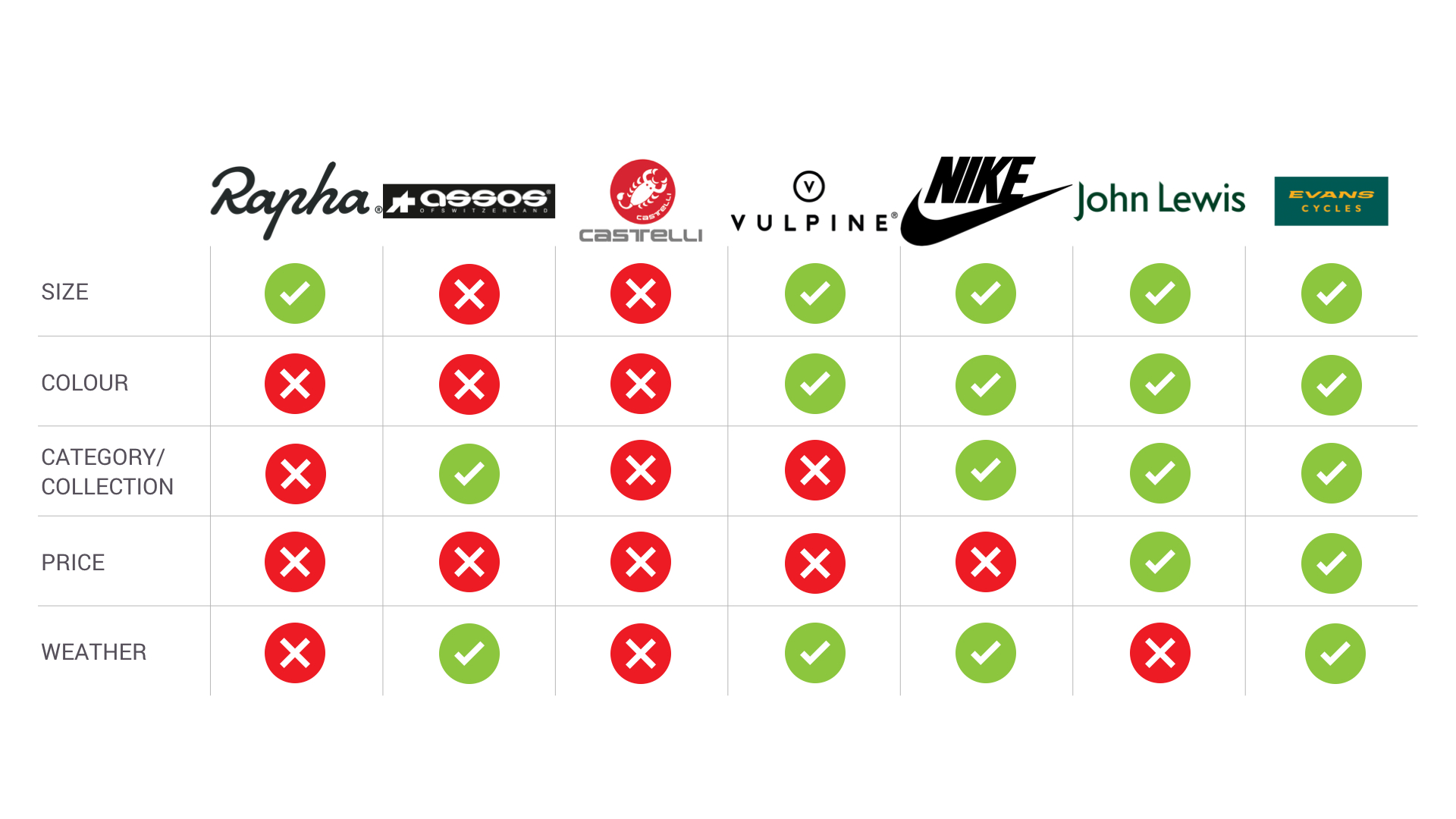
The Insight
We know that in the current format, filters are missed by most customers - less than 1% interact with them, with an incremental conversion rate of + 145%. If we increase the number of interactions we can the increase conversion rate.
“Less than 1% of current sessions include filter interactions” Rapha Google Analytics, June 2016
The Idea
A simple, easy to find and use filter that can evolve as we build out more facets in Hybris. The filter will be designed mobile first, this is an ever growing segment of traffic and browsing large collections is much harder on a small screen. The results must be live and react to the users selection, ideally without a page refresh to give a seamless interaction. Finally, the filter must always display a result, we will have to guide the user to prevent a no result situation.
Testing & Iteration
We tested different versions of the desktop & mobile filters with staff and Rapha customers in-store. The response to the work was very positive - customers were happy to see that changes were being considered to the current filtering system. With the mobile sketches, users felt that the filters were far too long when each facet had a list format, this was changed to a grid layout to prevent needless scrolling. Users wanted keep the filters at the top of the page and have the products scroll underneath them, therefore we changed the design to allow for a persistent filter option on both desktop and mobile.
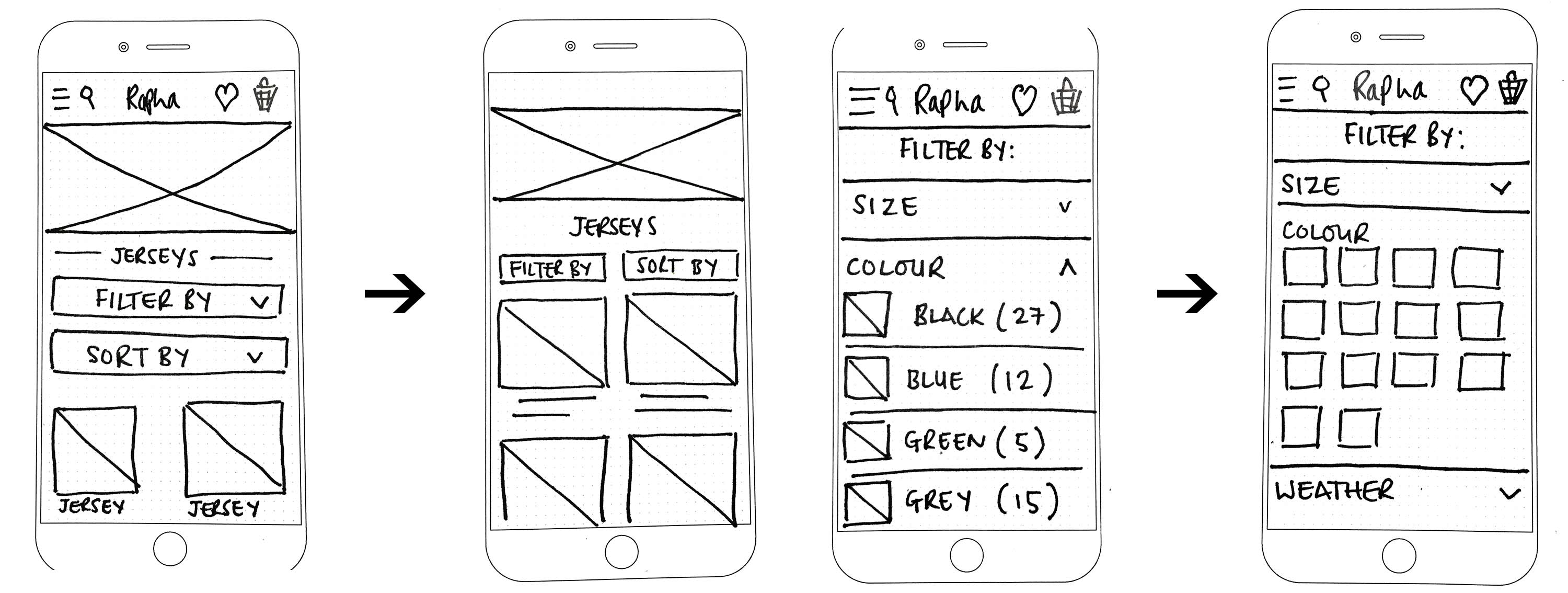
Sale time filters:
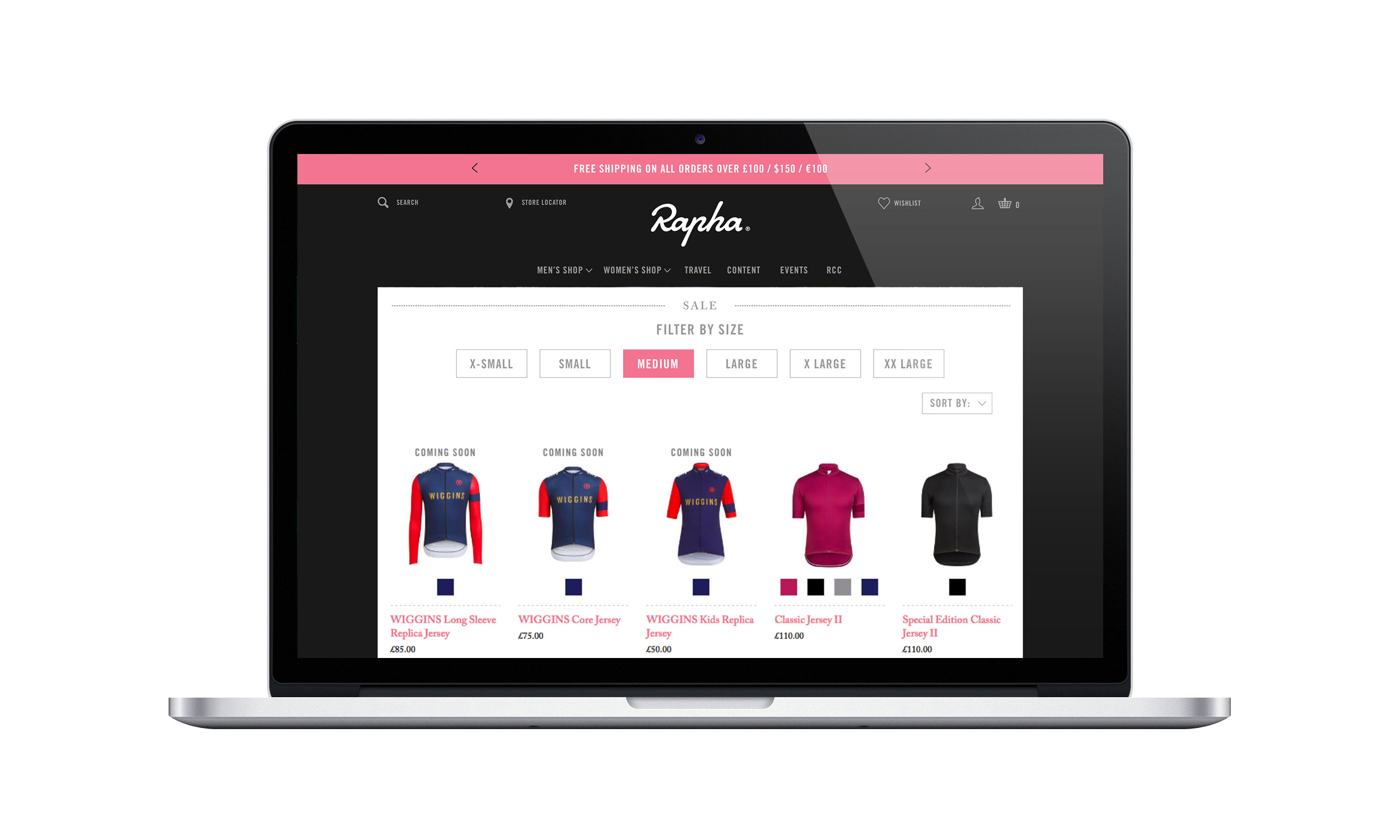
Other versions:

Final Mobile Screens
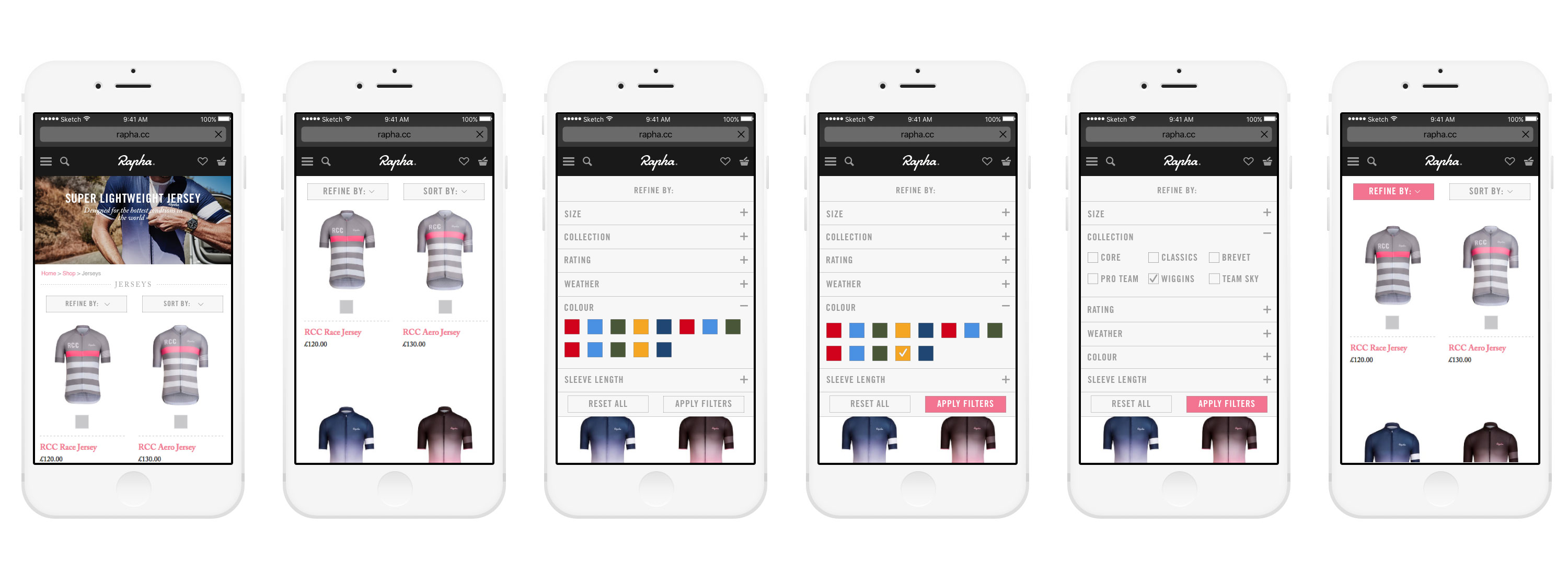
Final Desktop Screen
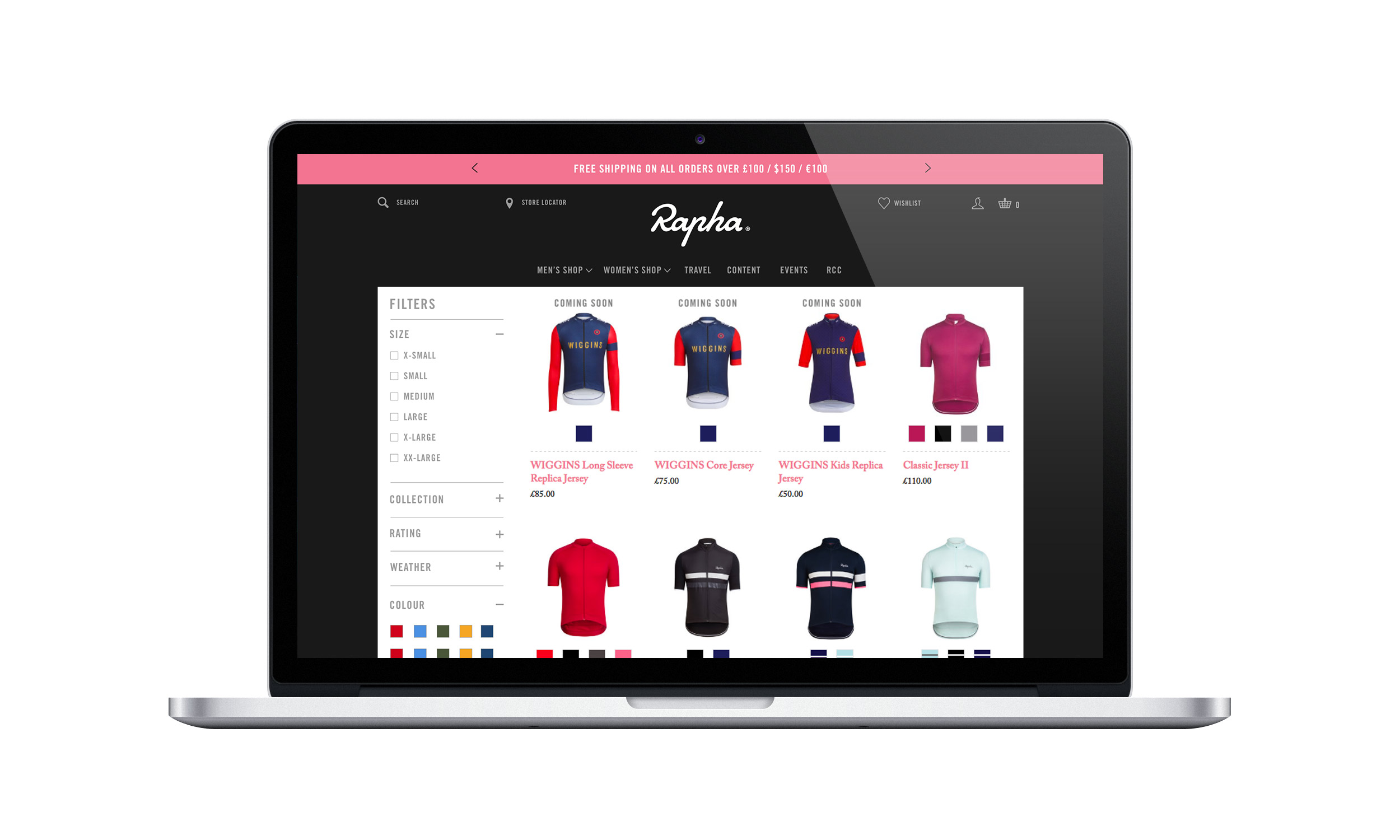
Outcome
“Implementation of the Sale Filter saw engagement reach 60%”Rapha Google Analytics, August 2016After implementation, in an average month the sessions that included filter interaction had increased to 5%, this reached 60% during the sale period when using the sale - size only filter. We delivered a much improved filtering module that will be flexible enough to grow with the company and enable new facets to be added as and when the data is available. The user can see the number of results returned as they go through the filters, if no results are available they will not be able to proceed to apply the filter but, be prompted to change their selection. Once the filter has been applied, the results load without the whole page refreshing, a faster more streamlined experience for filtering products.